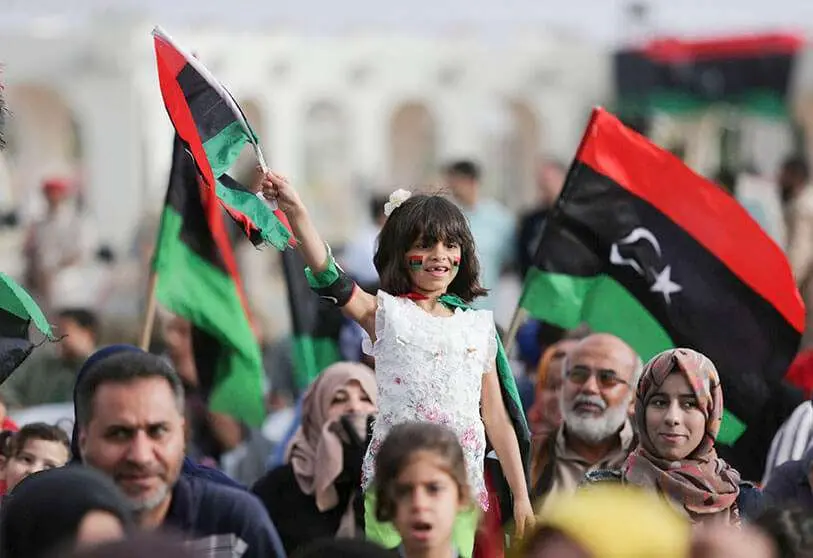Small conspiracies between friends

Let us start with a little farce: on the one hand, we have Egypt, the United Arab Emirates, Saudi Arabia, Russia and even the United States; on the other hand: Turkey is the UN. What makes this first heterogeneous group allies and what makes the two formations opposites?
Of course, in the official speeches, we will be told that it is a matter of restoring peace. We will be told about human rights, about containing migratory flows, about a humanitarian crisis that must be contained and about the fight against terrorism... But in reality, everyone defends their own financial interests.
In the midst of all these calculations, a country of some 8 million inhabitants is living under the horrors of a fratricidal war made up of daily massacres and kidnappings. Those who are unlucky enough to have black skin become slaves.
Since Gadafi's death, Libya has become a no man's land where different factions fight each other in a seemingly endless power struggle. And this war has a special feature: it has been remotely controlled from the outside since its inception in 2011. The belligerents are counting on their friends to conquer a little more territory and above all to get the oil wells under control. On the one hand, we have Fayez Sarraj, the head of the Government of National Unity (GNA) recognised by the United Nations and supported by Turkey, but whose power is not very extensive outside Tripoli.
On the other side, we have marshal Khalifa Haftar, who started a fight against terrorism and who has gradually become the new strongman in the country. Today he wants to take Tripoli. This ally of the West has serious arguments: he owns a good part of the oil wells and has been successful in the fight against Islamist terrorism. And whether or not he is recognized by the U.N. becomes, in this context, secondary.
The recent capture of Sirte by marshal Haftar was a mortal blow to Sarraj and Erdogan who had flown to his aid. Merkel called a summit to find a solution to the crisis in Libya, but unfortunately nothing concrete came out of it. The call for a moratorium on arms sales to Libya has never been respected, but the request to continue to clear his conscience was reiterated. What this summit managed to do, however, was to annoy Morocco and Greece, which were not invited, while Tunisia, which was offended, declined the invitation at the last minute and Algeria found a good opportunity to take up the torch again.
Indeed, in search of national legitimacy, Algerian President Tebboune is trying to find a role at international level and wants to become a privileged interlocutor in the Libyan crisis. Algiers is offering to host the reconciliation forum between Haftar and Sarraj.
In this war of power, what is surprising, moreover, is its media treatment. In fact, the press has focused its treatment of the Libyan crisis on reporting the reactions of the various countries and allies, leaving very little room for analysis of the situation on the ground. A rather symptomatic treatment of what is happening.
For its part, the African Union, wanting to give itself a role that it considers to have been taken away by Europe, met in Addis Ababa to try to find a way out of the crisis, but again nothing concrete came out of the meetings.
Yes, but France in all this, you tell me? Isn't it this country that started the war in Libya? Well, France is still playing a double game trying to align itself with the UN position while continuing to support Haftar. That is why Tripoli reminded France of its duty to act and, last May, decided to suspend Total's activities.
It should be remembered that one third of the French company's turnover is generated in Libya. Last December, tensions seemed to be easing and the French oil company signed an agreement with the National Oil Corporation (Libyan national oil company) for a concession in the Waha (Sirte) Basin. But since Sirte's capture by General Haftar, let's see what card France is going to be left with!
Yes, of course, we haven't talked about the Libyans in all this. Because simply: Libyans, nobody cares! Besides, neither Haftar nor Sarraj were at the Berlin summit!

